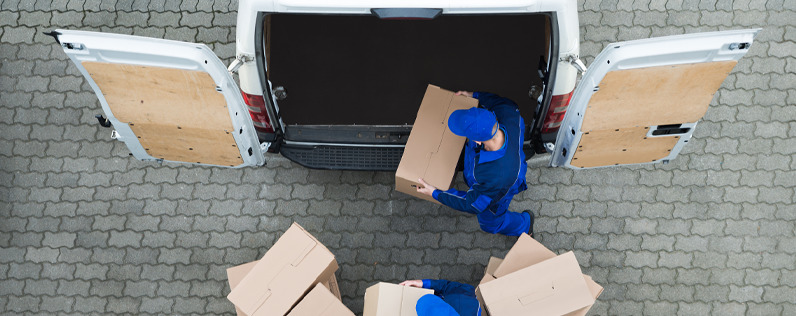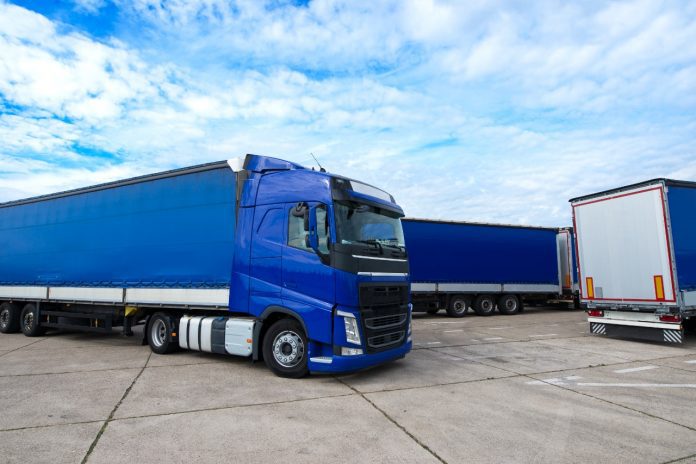How To Start a Logistics Business in South Africa
Logistics is a big game both locally and internationally because everything we use on a daily basis is shipped and delivered to various destinations before being sold and used. This is where you can cash in.
Are you thinking of setting up your own transport and logistics company? While entering the industry is not difficult, maintaining success as a trucking company can be challenging if your business plan, finances, and recruiting strategy are not solid from day one.
Whether you start with a bakery or a minibus, you must ensure that you are prepared for the high competition due to the low barrier to entry in the transportation and logistics industry.
What do you remember about the transport and logistics group?
Apart from the ease of access to the industry, you don’t need a lot of capital to get started – but do your homework. This is the only way you will build a sustainable business.
Now that you have decided the type of market you will enter, how do you start your logistics company? These are some of the top questions you should ask before you start a trucking company;
What costs do you need to consider when starting a shipping company?
You don’t need to be good at numbers, but understanding basic finances helps when starting any type.
- First, you need to determine where you are heading to start your trucking business. Many options include banking, investors, and bootstrapping.
- Next, you need to consider the specific expenses associated with the logistics industry, for example, license and tax expenses, in addition to maintenance, fuel, and driver skills development training costs.
- Even if you haven’t started running your transport and logistics team, you still need to consider the costs and maintenance costs of working with your operating systems. The latter depends on providing reliable service to the customers so that you can deliver them the excellence you want. While marketing may not be very important at this stage, it is important to increase the cost of this investment in the company.
- Remember that in addition to all the above costs, you will need money to keep your vehicles safe when they are not in use and when they are on the road. Place it in a safe place and other security features, such as an elevator.
- Finally, you need to pay your drivers and other salaries on a monthly basis, factor in that cost, and budget for your transportation and logistics business.
What should I look for when buying my first fleet of trucks?
Choosing the right vehicles for your trucking and logistics company means your drivers will have the right vehicle for the job. This leads to efficiency and speed of service.
“Seeing someone working small to deliver a huge package makes your company look unprofessional, just like a customer using a large bus to carry a small load,” say experts in the trucking and trailer industry.
Determining which vehicles you need now will help you have a clearer idea of the best financing amount to use when you approach banks for transportation financing options. This information helps you structure your repayment plan and explain your interest in more detail. You will be able to budget your finances accordingly.
Experts recommend investing in a long-haul truck for larger loads and longer trips. Babcock International, for example, has vehicles that will meet this need, although the cost is a little higher than the average truck.
An important aspect to consider is what the vehicle will be used for. Now, this may seem simple, but it is an aspect that many fleet owners often overlook. You should have an idea in mind of what the vehicle will be used for before you go to a dealer.

If you are already considering new vehicles for pre-owned trucks in your business, you will benefit from full warranty and service plans.
Once you’ve determined how much you’re willing to spend on your fleet, start looking at models tailored to your specific business needs.
Their vital aspects to consider when choosing your logistics vehicles are:
- What types of supplies you will be carrying
- The volume of supplies you will be carrying
- The types of terrains you will be driving over.
Courier companies will require different vehicles from moving companies, for example. Your idea of the ideal vehicle for your type of transportation and logistics business may need to be adjusted based on how much financing you qualify for or how much capital you’ve managed to allocate to purchasing vehicles for your fleet.
You may need to consider viable alternatives to find the right vehicle. Therefore, the list includes features such as safety, comfort, and condition rather than searching for brands and the latest models. “Being open to different vehicles is the key to a successful fleet vehicle purchase,” the experts advise.
How can I get truck financing for my transportation and logistics business?
Regardless of how vehicles are paid for, the cost of financing a transportation and logistics business is the most important expense you will ever have to manage.
Make sure you do your homework and understand the different options for paying for vehicles. You can consider the following options:
Financial leasing and long-term rental contracts, in which the use of the vehicles is financed by income, no advance payment is required, but ownership remains with the lessor;
Installment sale where a small amount is paid in relation to the total purchase price as a deposit, your installments are fixed and you own the vehicle at the end of the term.
Remember to factor in the running costs of running a logistics company, such as maintenance and wear and tear. These expenses should be included when considering the financing needed to launch and maintain your transportation and logistics business.
Before approaching a financial institution for financing, create a budget and estimate your affordability.

Where can I find training to help me start a transportation and logistics business?
The Road Traffic Management Corporation offers regulated vocational training courses, such as a National Certificate in Cargo Handling. Contact TETA for a list of accredited training institutions.
The Department of Public Transport, Roads and Works is responsible for issuing operating licenses.
A National Professional Driving Certificate is a valuable qualification that equips owners and managers with a variety of skills. It is advisable to seek a qualification that has been accredited by the Transport and Training Authority.
Remember that under South African law, any vehicle on public roads must be deemed roadworthy by an official test station. The technical inspection checks the following aspects of the vehicle:
- Identification and documentation
- Electric systems
- Accessories and equipment (including mirrors, seat belts, etc.)
- Break system
- Wheels (including tire condition)
- Suspension and undercarriage
- The steering mechanism is in order
- The motor
- Exhaust system
- Transmission
- Instruments
- Vehicle dimensions.
How do I hire drivers to work for my trucking company?
The key components of your business, aside from your vehicles, are your drivers. Your drivers must obtain the proper licenses before they can be considered legal to operate vehicles in your transportation and logistics business.
Avoid trouble later, with the law and your clients, by ensuring you hire qualified and experienced drivers at launch and as your business needs grow. Quality drivers not only increase productivity, but your reputation soars when your customers know they can trust your staff.
Invest in great employees and avoid setting the bar as low as the ability to drive and follow directions. Your drivers will need the corresponding driver’s licenses for different trucks and will require training to handle driving in dangerous situations, such as storms and heat waves.
“Know how to deal with staff and understand all the shortcuts in the areas you’ll be delivering to,” advises Espere Camino. “They will also require excellent communication skills to convey messages about their whereabouts.”

Where do I find clients for my logistics business?
As mentioned above, everything around us needs to be delivered from point A to point B. So while it may seem like jobs are scarce and doing business is difficult at first, avoid taking the first opportunity to get your first job client.
It may seem counterintuitive to pass up opportunities to get the wheels turning, but it’s important to assess whether or not it’s worth it. Proper planning is essential, so it is advisable to avoid ad-hoc deals.
Remember that all you need to get the attention of customers is a computer, a smartphone, and an Internet connection.
Charge-centric technology has advanced dramatically over the years, as have customer expectations. Most of the big companies allow customers to book and track all of their packages or deliveries online.
The best part is, that not only is it cheap to get news about your transportation and logistics, but it’s also relatively easy and fast.
Embracing technology doesn’t mean setting up an elaborate website, but it does mean making sure your customers can track your deliveries and contact you quickly if needed. Maybe you should implement an SMS notification system so customers can track their orders at the touch of a button.
Ensure your system is accurate when it comes to ETAs for deliveries and any delivery delays, giving customers peace of mind about using your service and the confidence to recommend you to others.
Your service should be as simple and convenient to use as possible.
How do I get suppliers to add my logistics company to their books?
The best way to get noticed and acquire a regular business is to be trustworthy from day one. People like that. They notice and appreciate good service and when you start your logistic business, it’s a good reputation to have.
When a company decides to use your transportation services, they must be sure that they will not be disappointed. Satisfied customers value reliable service, and it’s easier to retain existing customers when you offer quality service. It also helps that a good customer can encourage new business through referrals.
Despite the many challenges that come with running a successful transportation and logistics business, customers like to know that they are doing their best and that consistency is key to building loyalty from these companies.
It’s wise to start with the logistics you’re best qualified for and work from there.
If you have experience with smaller items, start there, but if you intend to expand your portfolio to include other specialty services, gain as much comprehensive knowledge as you can, while building a strong set of connections in relevant regions across the industry, and possibly the country too.

